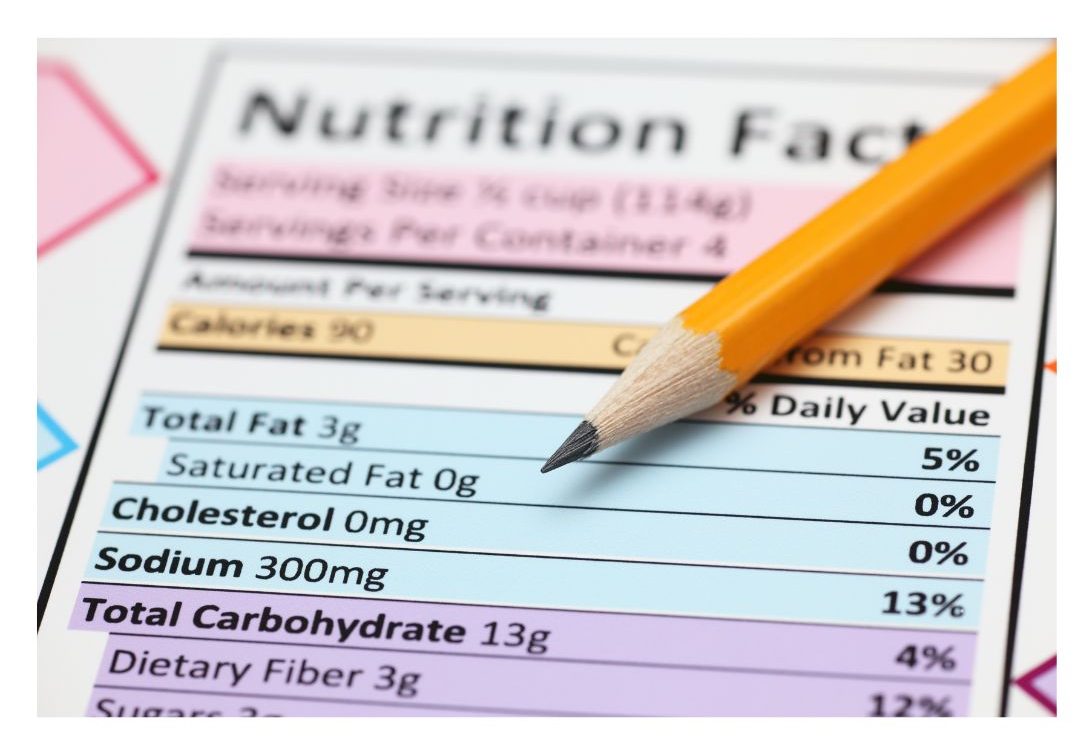
Interview with Jessica Stansfield, RNutr, Junior Nutrition Manager at Huel, MRes Performance Nutrition
Complete food is a relatively new and unique addition to the food industry. At MyNutriWeb we wanted to find out more. We recently caught up with Jessica Stansfield, Registered Nutritionist in the Sustainable Nutrition team at Huel where we learnt a lot and are sharing the learnings below.
Q: So what is Complete Nutrition?
A: It describes food that has been designed to meet the nutritional requirements of individuals,especially those seeking convenient yet balanced dietary options to match the fast-paced demands of modern life. This emerging category offers a solution for busy lifestyles, without sacrificing essential nutrients. Complete foods are formulated to provide a comprehensive and balanced nutritional profile for a broad range of consumers. Companies such as Huel, providing plant-based nutritionally complete food, are part of this complete food category. Short for Human + Fuel, Huel is dedicated to offering nutritionally complete food that caters to the needs of a variety of consumers.
Q: What is the definition of ‘Complete Nutrition’?
A: While the sector of complete nutrition is growing, the absence of a current legal definition of these types of products has resulted in confusion and mixed sentiment around nutritionally complete foods.
When asked, 78% of UK HCPs said they were ‘somewhat familiar with nutritionally complete foods’.
As there’s no current legislation of “nutritionally complete food”, there are of course varying interpretations within the industry. At Huel, this is how we define the term:
Huel products are “nutritionally complete” at 2,000 calories through high quality, optimally sourced ingredients that provide ideal amounts of all essential nutrients as well as beneficial levels of other important nutrients for optimum health, energy, and performance.
It’s important to note that, while we formulate our products to provide a complete nutritional profile at 2,000 calories, we’re not suggesting that people rely solely on Huel for 100% of their diet. Rather, we formulate to 2,000 calories, ensuring that each meal has all the required nutrients on a pro-rata basis. Just as you wouldn’t expect a single whole-food meal, like your morning porridge, to provide 100% of the recommended daily allowance for each nutrient, Huel meals deliver these essential nutrients proportionally.
While Huel’s approach prioritises plant-based ingredients sourced for quality, other complete food companies may offer their unique interpretation of this concept, which could also include non-plant-based options.
Q: What about RDAs?
A: As many health professionals will know the Recommended Dietary Allowance (RDA) is a generic term that refers to a reference value for a particular nutrient in a specific nation or region, e.g. in the EU the terms are Reference Intake (RI) or Nutrient Reference Value (NRV); in the US it’s DV (Daily Value); in Japan, it’s the Nutritional Standards.
RDAs have been set to ensure people get a minimum intake amount of each nutrient sufficient for the vast majority of a population (typically, at least 97.5%).
It’s important that we recognise that no single food can perfectly meet the unique dietary requirements of every individual. However, Huel is formulated to provide a substantial portion of these needs for the majority of people.

Q: Does Huel contain all of the essential nutrients?
A: Huel products provide optimum amounts of all essential vitamins and minerals, protein, essential fats, carbohydrates, and fibre.
By optimum, we mean, as well as meeting the RDAs, Huel products contain higher levels of those nutrients where it has been demonstrated by sound science that achieving a certain intake level has a health benefit. Where appropriate, Huel products meet the desirable levels. These include vitamins C, D, and B12, folate, and zinc.
For example, it’s widely considered that the amount of vitamin C we’re recommended to consume is too low1,2,3so we’ve reflected this in the Huel formula. Benefits of consuming more vitamin C include a healthy immune system, healthy skin, and antioxidant properties2,4.
So yes, a serving of Huel contains an amount of the essential nutrients that are proportional to what you require in a day. 2,000 calories is the level where you would at least meet the recommended daily amounts (RDAs) of all essential nutrients.
Q: How did you uncover insights into the understanding of ‘nutritionally complete foods’ among HCPs?
A: We conducted a survey with Registered Dietitians in the UK and Registered Dietician Nutritionists (RDNs) in the US. This survey aimed to gain further insight into HCPs’ familiarity with nutritionally complete foods and their definition.
We received 363 validated, completed responses from UK HCPs and 440 from the US. When answering the question, ‘How familiar are you with nutritionally complete foods’, 78% of UK HCPs, and 74% of US HCPs indicated they were ‘somewhat familiar’.
When HCPs were asked further questions about complete foods, many misconceptions were presented, such as the idea that complete foods have been designed to be consumed for 100% of an individual’s diet. These valuable insights underscore the existing lack of understanding within the ‘complete food’ sector, emphasising the role of companies, such as Huel, in raising awareness.
Q: What are the common misconceptions about ‘complete’ foods?
A: In an ideal world, we’d all have time to select, buy, prep, and cook a meal made with whole foods, and know we’re getting the complete nutrition we need. Unfortunately, this isn’t always possible, especially when we’re on the go or in a rush. Complete foods can be the perfect plan B.
Here’s a brief Q+A addressing the top four misunderstandings surrounding complete nutrition:
Statement 1 – ‘I thought that complete food companies are suggesting these products are superior to traditional foods?’
To clarify, Huel, as a meal, offers sufficient amounts of protein, essential fats, carbohydrates, fibre, vitamins, and minerals. Of course, it’s not intended to replace a whole day’s nutrition per serving, it’s a convenient meal option for when people don’t have time to prep a meal at home. We acknowledge that a whole-food diet is the ideal, but also recognise that there’s a time and place when Huel can complement and provide a convenient nutritional option.
Statement 2 – ‘Are complete meals considered as medical food, designed for hospitals?’
At the forefront, Huel is formulated to offer a convenient, nutritionally balanced option for everyday consumption. While not exclusively intended for medical purposes, Huel can be beneficial in certain situations where individuals struggle to consume solid foods. In these cases, Huel offers a practical solution.
Statement 3 – ‘Are complete meals designed to be consumed for 100% of the diet?’
While it’s indeed possible to consume only Huel, it’s not something we actively recommend. In an ideal world, we’d all have time to select, buy, prep, and cook a meal made with whole foods, and to know that we’re enjoying optimum nutrition. Unfortunately, this is not always possible, especially when we’re on the go or in a rush. Huel serves as the perfect plan B. Huel can be used as much or as little as you want, it can be flexible in someone’s diet. Once a month or multiple meals a day, it’s all about what works best for individuals.
Statement 4 – ‘Is the purpose of these meal replacements for weight loss?’
Meal replacements on the face of it may seem similar to complete food such as Huel; however, they are far from it. They are generally marketed and designed to support either weight loss or a fitness program. Meal replacements are often low in calories, i.e. not enough for a meal, high in sugar, and lacking in fibre, fat, and low glycaemic index (GI) carbohydrates. Huel meals have specific macronutrient splits, with good-quality carbohydrates, fat, and protein providing nutritious convenient food. It’s as simple as that.
Q: How can nutritionally complete foods be useful?
A: As Huel isn’t designed for one specific population group, we’ll showcase some different scenarios where an individual could benefit from complete nutrition, such as Huel.
- Commuter- ‘I want to save time in my working day, without compromising on the nutrition that supports my physical goals. Taking a Huel shake on the train ensures I never skip breakfast’.
- Environmentally aware– ‘I’m all for exploring new options, but care about the environment and do my best to reduce my carbon footprint’. As Huel is Plant-based, switching to Huel once a day, when I am busy, is a step toward this goal. Keep your eyes peeled for upcoming content on sustainability at Huel!
- Money conscious– ‘I’m actively trying to be healthier but balancing it with my budget can be challenging. Choosing Huel over eating lunch out in the week is a smart way for me to have a nutritious meal without breaking the bank’.
- Tired parent– ‘Being a busy parent, my priority is to feel healthier. I don’t have a lot of time to dedicate to my goal so it needs to be easy, Huel certainly fits the bill for me’.
- Shift working nurse– ‘I work in the public sector so need to find easy meals to eat during short breaks and on the go. Having Huel ready to drink once a day is the ideal solution for me, convenient and nutritious, and keeps me fuelled throughout my shifts’.
- Active lifestyle– ‘I understand my body and what I need to live a healthy lifestyle. I choose to invest in my health via nutrition, gadgets, and fitness and Huel is the perfect post-workout for me’.

Summary
In today’s fast-paced world, complete nutrition presents a promising solution, yet confusion persists regarding its definition and use. At Huel, complete nutrition entails not only essential nutrients but also beneficial levels of other important nutrients for optimum health, energy, and performance. Every Huel meal contains a balance of all 26 essential vitamins and minerals, protein, essential fats, carbs, fibre, and phytonutrients in a single product. The Sustainable Nutrition team at Huel are debunking some of the the top misconceptions surrounding ‘complete foods’ and demonstrating how Huel can fit into diverse lifestyles from commuters to eco-conscious individuals, and those seeking nutritious, budget-friendly options, among others.
Disclaimer
This blog has been written in collaboration with the Sustainable Nutrition team at Huel and reviewed by the MyNutriWeb nutrition and dietetic team. Sign up to the Huel HCP newsletter using the following QR code:

References
1. Deruelle F, et al. Vitamin C: is supplementation necessary for optimal health? Journal of alternative and complementary medicine (New York, NY). 2008; 14(10):1291-8.
2. Combs J, et al. The Vitamins. 4th ed. Burlington: Elsevier Science; 2012.
3. Hathcock JN, et al. Vitamins E and C are safe across a broad range of intakes. American Journal of Clinical Nutrition. 2005; 81(4):736-45.
4. Institute LP. Oregon State University. Vitamin C. Date Accessed: 27/03/24. [Available from: https://lpi.oregonstate.edu/mic/vitamins/vitamin-C]







Interesting article Jess! As a regulatory person, I have often wondered how you’re able to claim complete nutrition on pack. If there’s no legal definition or requirement to meet to claim this. How do you legally sustain this?
Also, how do your customers know that huel are not suggesting that a diet solely of huel is recommended. If I saw something stating complete nutrition on pack, I would assume it would be enough to live off essentially. I know as a company you preach a lot about not consuming Huel all the time but this isn’t obvious on pack. I don’t think?